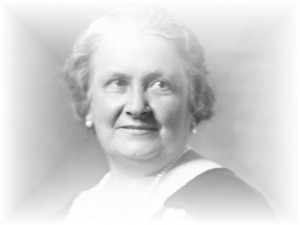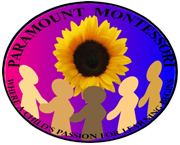Maria Montessori
Maria Montessori was born in 1870 in Italy. She was the first women to receive a medical degree. During her age she was very distressed with the rigid teaching techniques used in Europe. She believed that young children had more potential than what educators realized and then started developing her approach based on sensorial exploration. She believed –
- Natural interests in exploring the world through sense Children living freely in it
- Changing the environment to the needs of the child’s physical,mental, emotional and spiritual needs to fulfill the greatest potential

What is Montessori approach?
In Dr. Montessori’s philosophy young children are motivated from within and have a natural curiosity to learn. She believed “No human beings can be educated by another person.” So the goal of early eucatiom is to cultivate the child’s own desire to learn. Dr. Montessori also observed that children go through sensitive periods in life from birth to six years. Sensitive period is a term referred as dot age period, where child shows unusual capabilities in acquiring particular skill. Dr. Montessori was so impressed with the learning ability of a young child that she referred the mind of a child as “Absorbent Mind.” The child actually inhales everything from the environment like a sponge. Therefore in her belief the prepared environment with the help of trained teachers opens the window to countless stimulation, observation and discovery.
Montessori Vs. Traditional
- Teacher guides the learning process and helps each child with individual attention.
- Children can choose what they would be working on.
- Many individualized instructions.
- Children develop self-discipline from the environment and inner self.
- Purposeful movement around the room.
- Different age grouping together helps children bring in a feeling like a family. Older children often help younger children.
- Sometimes children work in small groups.
- Materials prepared for the children are usually designed for the individual needs.
- Children can work as long as they want to in a given project.
- Children discover from the specialized materials and make new extensions from lessons.
- Child sets his own learning pace.
- Materials are self-corrective. So the control of error is built in.
- Multisensory materials for exploration.
- Child feels successful internally.
- Organized program for care of self and the environment.
- Parents have to understand the Montessori philosophy to have their children participate.
- Teacher is the center in the classroom. Everything in the classroom is teacher directed.
- Children are not allowed to choose their own work.
- Group instructions.
- Teacher is the source of discipline.
- Restrictive movement.
- Same age grouping.
- Mostly teaching is done by the teacher.
- Curriculum is structured and is same for all children. No attention is paid to the individual needs of every child.
- Children are allotted specific time to work on a given project.
- Concepts are largely guided by the teacher.
- Instructional pace is usually set by the teacher.
- Errors are pointed out only by the teacher.
- No hands on materials.
- Learning is externally motivated by reward system.
- No such emphasis.
- Parental involvement is voluntary.

